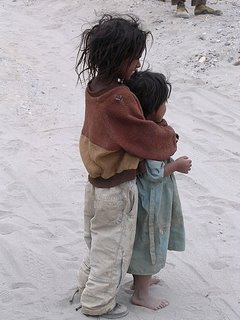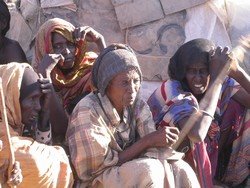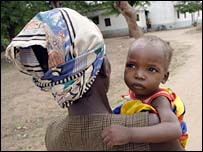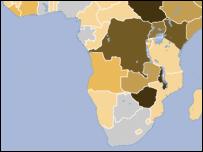by: Nasir Al-Amin

Call it a selfish-pleasure, this opportunity to disconnect from normative vices, but being in Ethiopia frees me from various mundane vices I as an African American have grown to accept as the status quo. In Ethiopia people assume my ethnicity is Ethiopian, Arab or a mixture of the two. Hence, initially I’m not treated as a foreigner; rather I'm treated as someone who belongs. Ironically, this feeling of belonging, albeit founded on a false pretense, feels more genuine than the pseudo belonging I experience in my country of origin. As to often in the country of my birth I’m reminded of my ethnicity, and the devaluing and divisive stereotypes of African Americans.
Last week I ventured out of New York City to attend a conference at the University of Maryland. Upon leaving the metro station in search of the campus I stopped a passerby and inquired about the conference’s location. A conversation ensued and we began to trek together as our destinations were in close proximity to one another. Instantly, we both realized that we both were Muslims (the spot on my forehead from prayer and her hijab, gave it away for both of us) but could not figure out each other’s country of origin. While waiting for the taxi we both shared our ethnic background and our love for Islam. Subsequently, we shared a taxi and continued our conversation. As the driver maneuvered through the streets she began to tell me about life in Saudi Arabia. Once we approached her destination we gave each other Salaams and I proceeded in the taxi. During the ride I asked the driver what is it like driving a taxi in the Maryland area. He replied, “Its ok. I mean its good, but the blacks…the African Americans they will rob you. There so damn evil. I mean you have to watch them.” The driver went on this desultory philippic about African Americans, and I sat there not in a state of shock or disbelief, but amused at how this script and/or this type of character seems to frequently appear in my life. Given that I’m accustomed to this type of actor and script making guest appearances in my life I figured I play along, I would in a sense “get in character.” So I would interject a “really” here and there, and a “wow,” oh and a “man you got to be careful,” one or two “seriously,” and a couple “maaaaan, really.” Once we arrived at the campus I felt obligated to pull the curtain on this play, so I paid the fare and before leaving the taxi I informed him that I’m African American. The look on his face was priceless! He requested that I stay and hear him out, but I respectfully declined, and went on to the conference.

What does one derive from this? What does it mean in the 21st century to live amongst those who characterize themselves as “Civilized,” as the “First World,” as the “Free World,” a people sojourning through the world on a self-imposed mission to spread democracy, what does it mean to still have segments of this population embrace not only clandestinely, but openly the dehumanizing and devaluing realities of racism and classism? And what effect does that have on the worldview of someone who embraces the tenets of racism and classism? Did race and/or class play a role in the Hurricane Katrina catastrophe? Does race and/or class affect how we respond to the HIV/AIDS epidemic in Africa? Is it plausible that we need to reflect on what people and terminology we associate with poverty, child labor and trafficking, famine, child prostitution, and how that association affects our subsequent response, or the lack their-of?
I don’t know any of the answers to the aforementioned questions, rather I do know that in Addis I felt welcomed, I felt like I belonged, and I forgot about notions of “us and them” and thought in terms of “we”—their concerns became mine. Maybe those of us in the “First World” can learn from the *“Third World” and start viewing the world in terms of “we.” Plausibly from that reference point, for instance, we can refrain from viewing issues facing Africa as Africa’s problem, but rather as our problem, which would foster an inclusive worldview, rather than an exclusive one. A worldview that compels us to act: to act on behalf of the 1.2 million children trafficked each year, on behalf of the13 million children orphaned by AIDS, on behalf of the 1 million children globally confined to a life in detention as a result of conflict with the law, on behalf of the 246 million children engaged in child labor and the approximate 180 million forced into the worst forms of child labor, on behalf of the 2 million children exploited through prostitution and pornography, on behalf of the 300,000 child soldiers (some as young as eight) exploited in armed conflict, on behalf of the estimated 40 million children that suffer from abuse and neglect and lack health and social care, on behalf of the 100 to 130 million women and girls that have been subjected to some form of genital mutilation/cutting, and on behalf and in remembrance of the more than 2 million children that have died as a result of armed conflict since 1990.
* I do not advocate using “First World” and “Third World” terminology, however I think using such terms in this context helps to deconstruct these false notions of a "First" and "Third World."

 supplies…I know when you play with other kids their parents drill them to stay away from you…I know your sister crossed the Red Sea to be a servant…I know you had a funeral for your mother as she lost her fight with AIDS…
supplies…I know when you play with other kids their parents drill them to stay away from you…I know your sister crossed the Red Sea to be a servant…I know you had a funeral for your mother as she lost her fight with AIDS…










